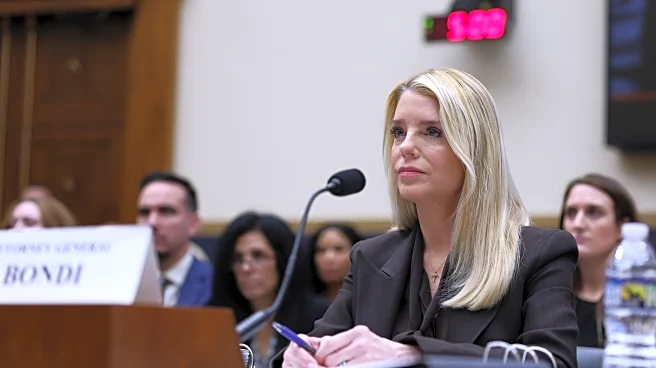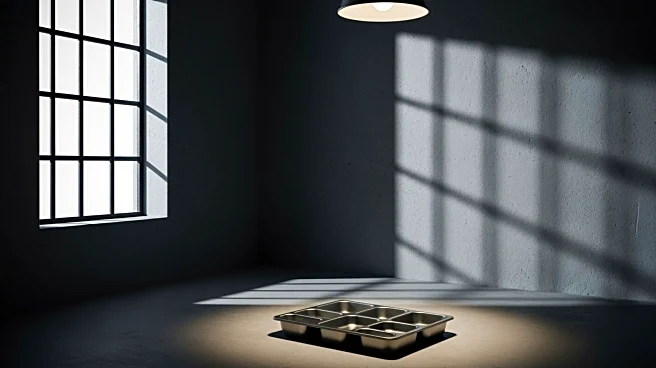What's Happening?
A woman in Virginia, Lauren Dodds, expressed frustration after encountering a man using the ladies' restroom at a restaurant, not due to discomfort with his presence, but because of the absence of baby
changing facilities in men's restrooms. Dodds, a writer from Richmond, shared her experience on social media, emphasizing the outdated assumption that only women are responsible for changing babies. Her post gained significant attention, highlighting the need for gender-neutral or family restrooms equipped with changing tables. This incident underscores the societal shift towards shared parental responsibilities, yet reveals a lag in accommodating these changes in public facilities.
Why It's Important?
The incident brings to light the ongoing gender biases in public amenities, reflecting broader societal issues regarding gender roles and equality. As more families adopt dual-income models, the expectation for shared parenting duties increases, necessitating changes in public infrastructure to support these roles. The lack of changing facilities in men's restrooms perpetuates outdated gender norms, potentially affecting family dynamics and public policy. Addressing these gaps could lead to more inclusive environments, promoting equality and convenience for all parents, regardless of gender.
What's Next?
The growing awareness and discussion around this issue may prompt businesses and policymakers to reconsider restroom designs, potentially leading to the implementation of more family-friendly facilities. Advocacy for gender-neutral restrooms or the inclusion of changing tables in all restrooms could gain momentum, influencing future architectural standards and public policies. Stakeholders, including parents, businesses, and gender equality advocates, may push for legislative changes to ensure public spaces accommodate modern family needs.
Beyond the Headlines
This situation highlights the cultural and ethical dimensions of gender roles in parenting. It challenges traditional norms and encourages a reevaluation of societal expectations regarding parental responsibilities. The discourse may contribute to broader conversations about gender equality, influencing cultural perceptions and potentially leading to long-term shifts in how public spaces are designed and utilized.










